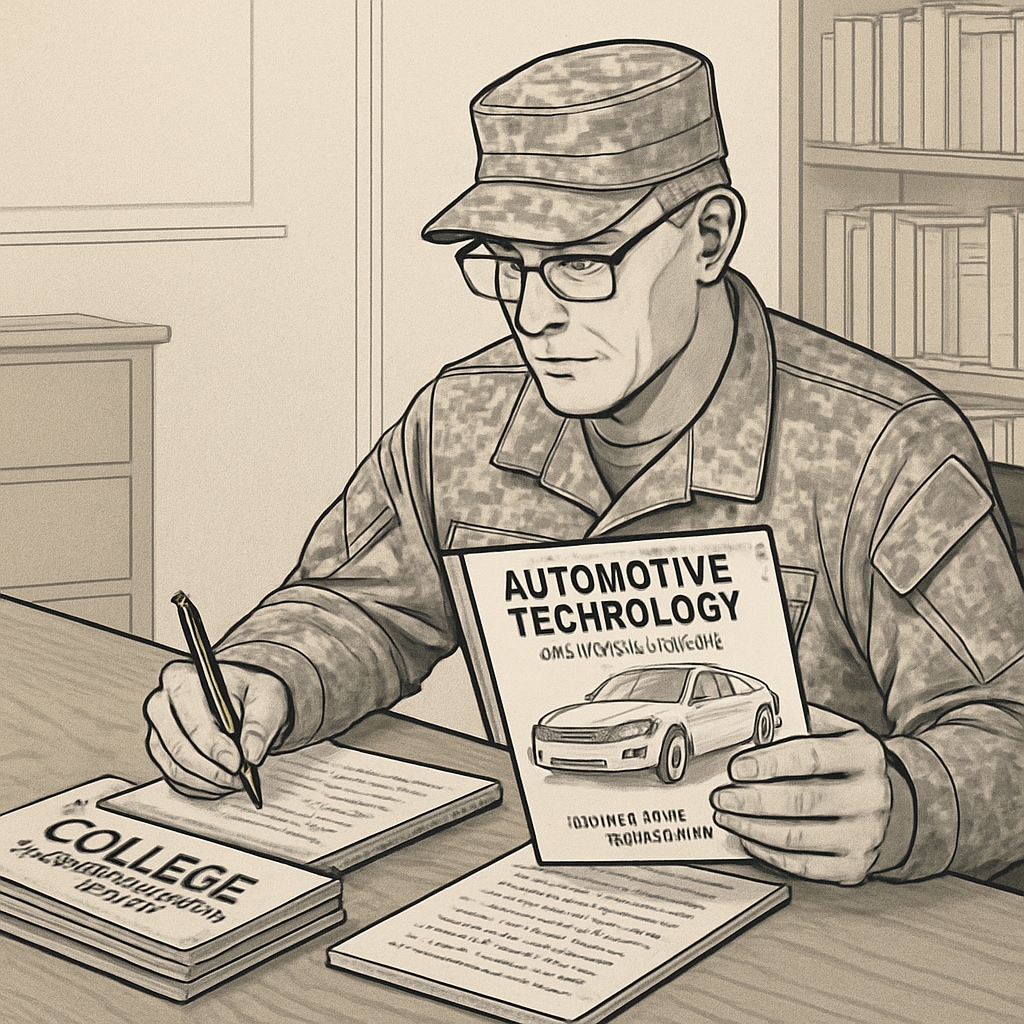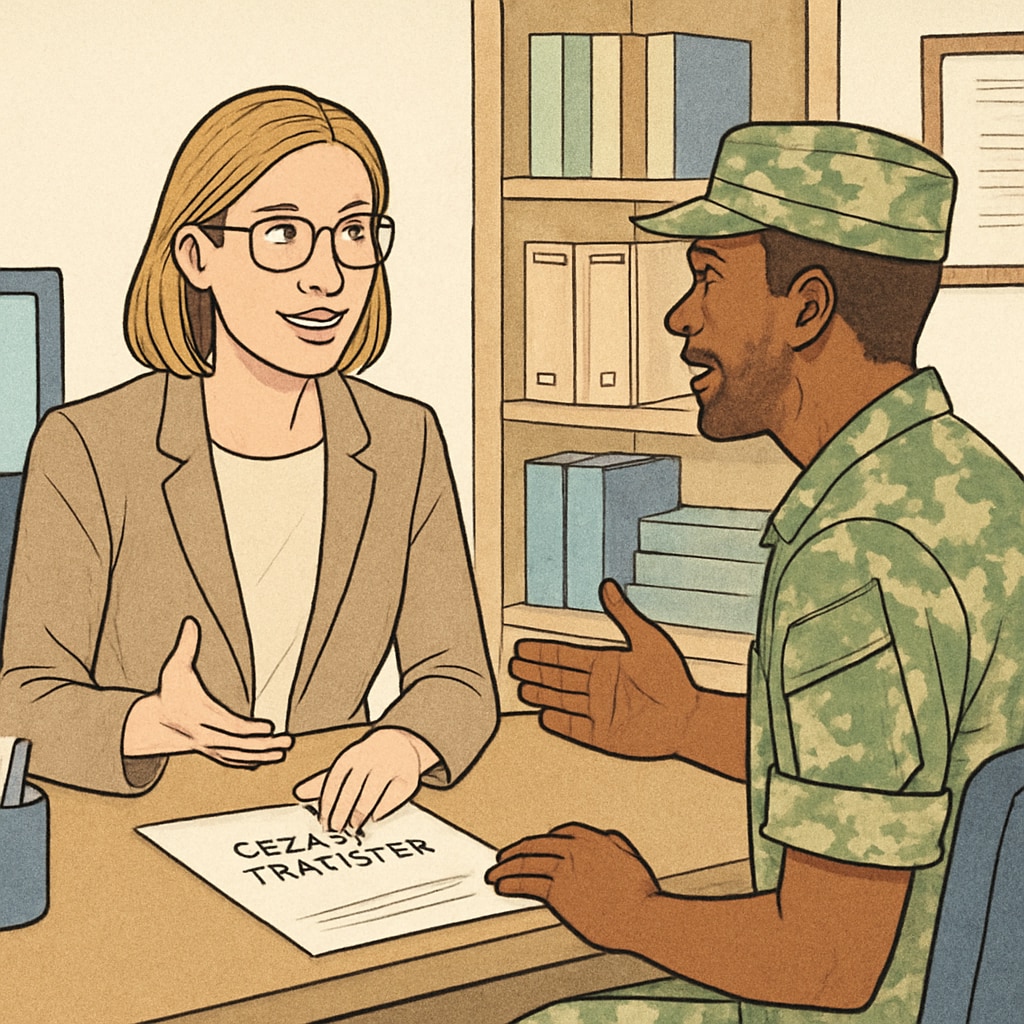For military veterans with an automotive technology associate degree, transitioning to a bachelor’s degree can open doors to advanced career opportunities and personal growth. The process of upgrading your qualifications can be streamlined by maximizing credit transfers and aligning your educational goals with suitable programs. This article offers actionable advice for veterans seeking to turn their associate degree into a bachelor’s degree, ensuring academic progress while capitalizing on their military experience.
Why Upgrade from an Associate to a Bachelor’s Degree?
An associate degree in automotive technology provides a solid foundation in the field, equipping students with technical expertise and hands-on skills. However, many career paths in the automotive industry and related sectors increasingly require a bachelor’s degree for leadership roles, specialized positions, or advanced technical knowledge. For veterans, upgrading their qualifications can also signal a seamless transition from military service to civilian careers.
In addition, earning a bachelor’s degree can result in:
- Higher earning potential
- Broader career opportunities in management, engineering, and research
- Greater job stability and upward mobility
Therefore, pursuing an advanced degree can be an investment in both your professional and personal development.

Choosing the Right Bachelor’s Degree Program
Not all bachelor’s degree programs are created equal, especially when it comes to compatibility with an associate degree in automotive technology. To ensure a seamless transition, veterans should focus on programs that offer credit transfer agreements and align with their career goals. Common options include:
- Automotive Management: This program emphasizes business and managerial skills tailored to the automotive industry.
- Mechanical Engineering Technology: Ideal for those looking to delve deeper into the technical and design aspects of automotive systems.
- Industrial Technology: A broader focus on technology and processes, applicable to various industries including automotive.
Veterans should also consider online programs that provide flexibility for those balancing work, family, or other commitments. Many colleges and universities offer virtual options designed specifically for working adults and veterans.
Maximizing Credit Transfers
One of the key benefits of having an associate degree is the ability to transfer credits towards a bachelor’s degree. However, the number of credits accepted can vary significantly depending on the institution and program. To make the most of your prior education:
- Research Articulation Agreements: Check if your associate degree institution has partnerships with bachelor’s degree programs to facilitate credit transfers.
- Leverage Military Experience: Many schools offer credit for military training and experience, which can further reduce the time and cost of completing your degree.
- Consult Academic Advisors: Work with advisors to identify courses that align with your chosen program’s requirements.
By carefully planning your transition, you can avoid retaking courses and accelerate your path to graduation.

Actionable Steps for Veterans
Veterans looking to upgrade their automotive technology associate degree can follow these steps to ensure a smooth transition:
- Assess Your Goals: Consider your career aspirations and how a bachelor’s degree can help achieve them.
- Identify Compatible Programs: Research schools that offer bachelor’s degrees in automotive technology or related fields.
- Evaluate Credit Transfer Policies: Understand how your associate degree and military experience can be applied towards your chosen program.
- Apply for GI Benefits: Utilize educational benefits available to veterans to reduce financial barriers.
- Stay Connected: Join veteran networks or student groups for support and resources during your academic journey.
Final Thoughts
Transitioning from an associate degree in automotive technology to a bachelor’s degree is a logical next step for military veterans looking to advance their careers. By carefully selecting programs, maximizing credit transfers, and leveraging available resources, veterans can achieve their academic and professional goals efficiently. This journey not only enhances career prospects but also fosters personal growth and lifelong learning.
Veterans who take advantage of their associate degree, combined with their military discipline and experience, are well-positioned to excel in the classroom and beyond. Start exploring your options today to pave the way for a successful future.
Readability guidance: Use short paragraphs and lists to summarize points; ensure a balance of active voice and concise sentence structures; integrate transition words for better flow.


